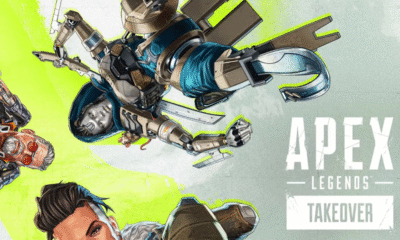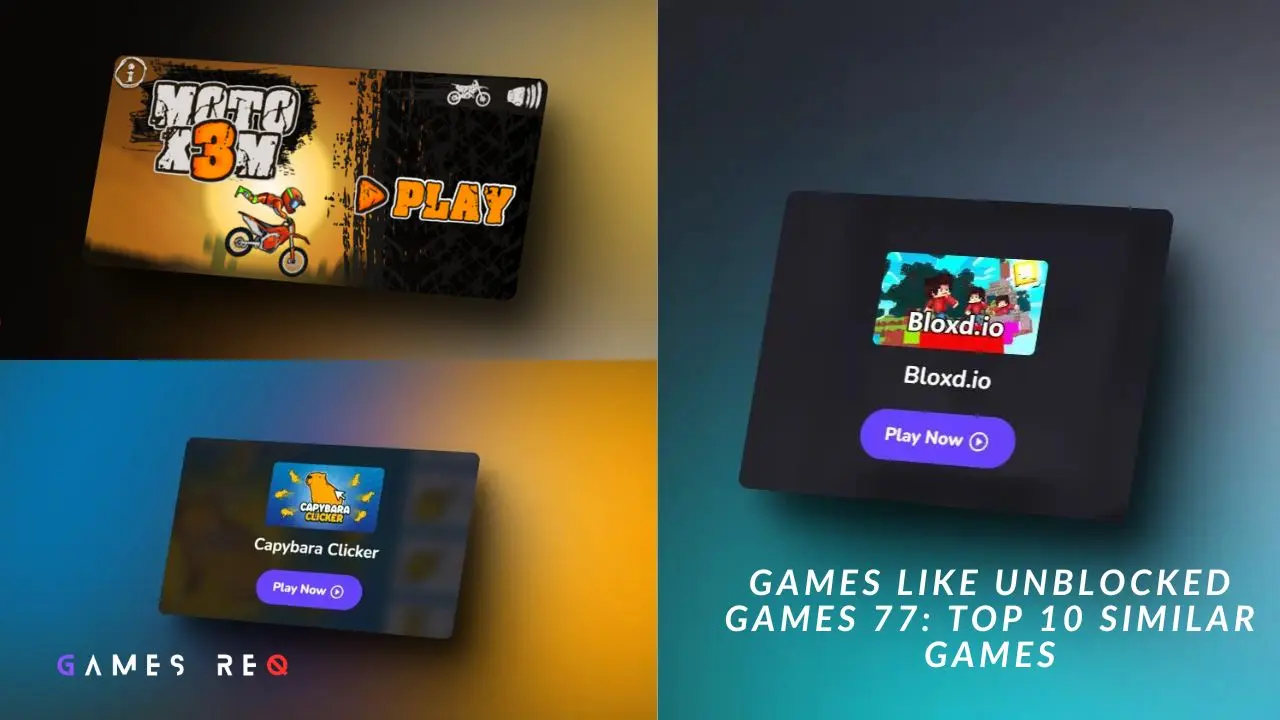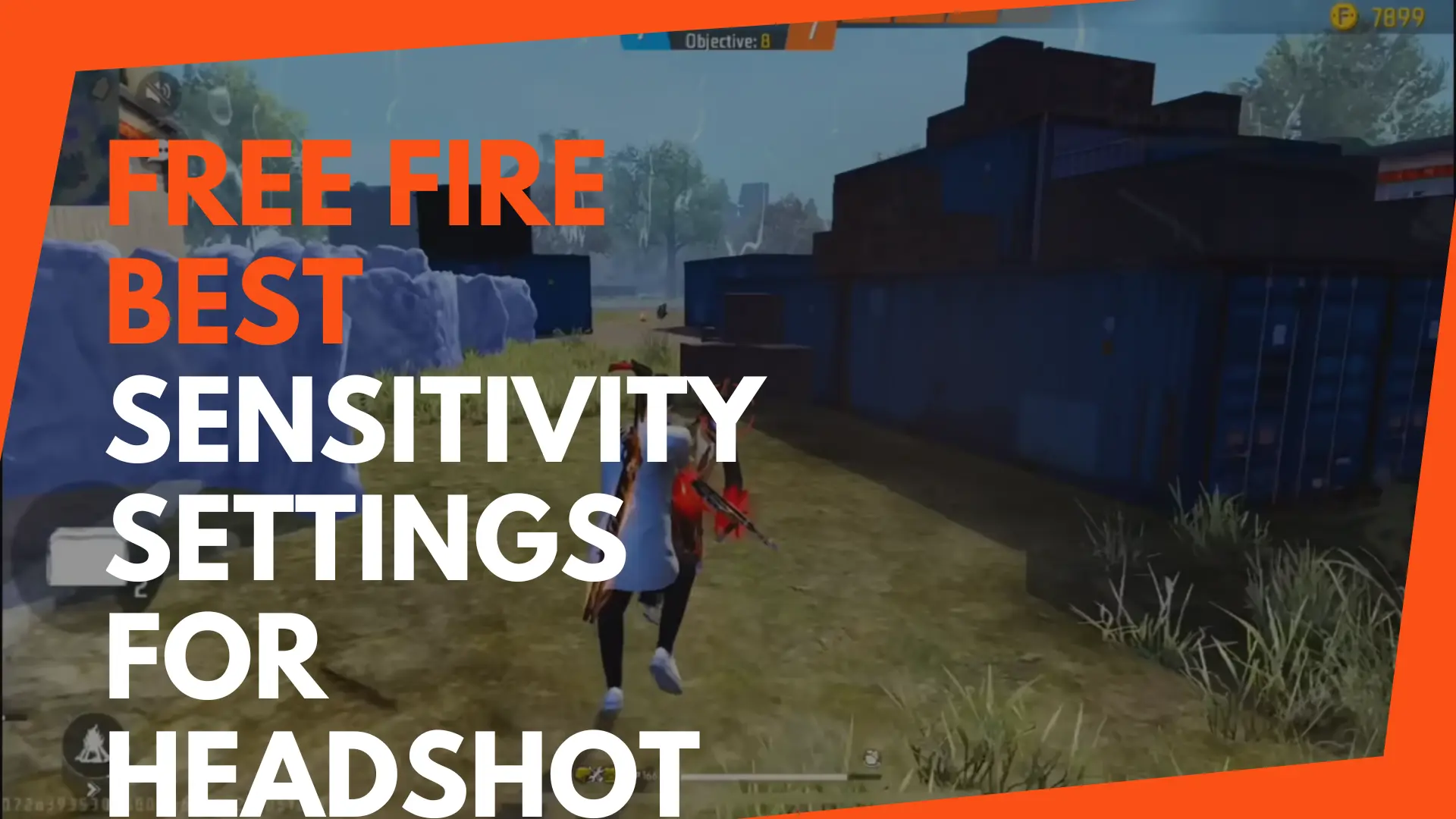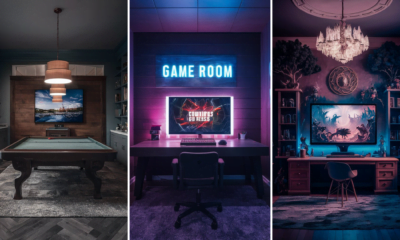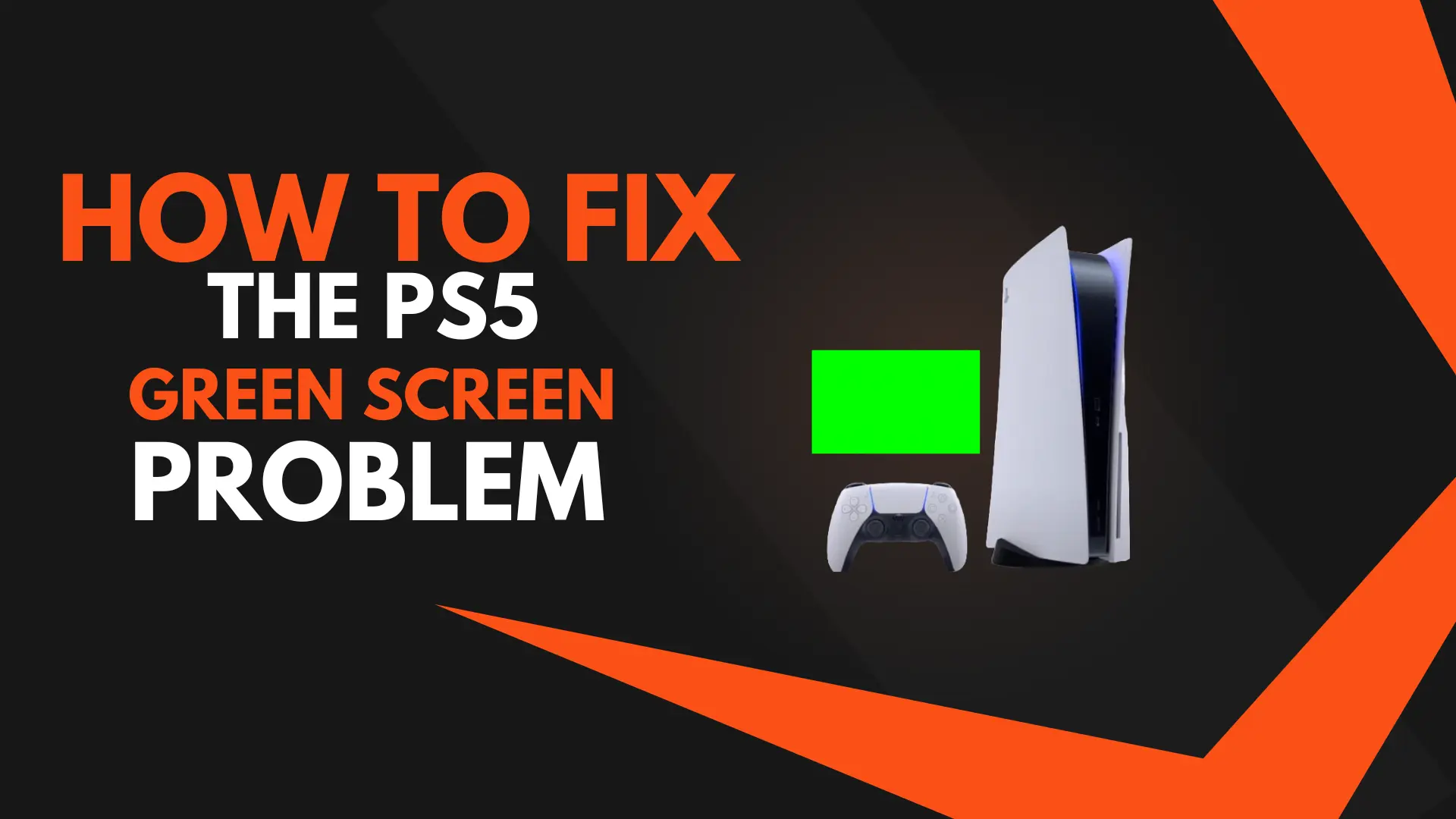Gaming Psychology
What is the Mindset of a Gamer? [Explained]
![What is the Mindset of a Gamer? [Explained]](https://gamesreq.com/wp-content/uploads/2024/08/What-is-the-Mindset-of-a-Gamer-Explained.webp)
Key Takeaways:
- Gamers are driven by passion and a desire for immersion.
- They approach challenges with strategic thinking and persistence.
- Goal-setting is crucial in their gaming experience.
- Social interaction and community play significant roles.
- Gamers are highly adaptive and resilient.
Short Answer
A gamer’s mindset is characterized by passion, strategic thinking, goal orientation, and a strong sense of community. They approach games with enthusiasm, solve problems creatively, and learn from challenges to improve their skills.

Intro
Ever wondered what makes gamers tick? It’s more than just picking up a controller or clicking a mouse. The mindset of a gamer is unique and involves a mix of passion, strategy, and community spirit. Let’s dive into what defines this mindset and how it shapes their gaming experiences.
Defining the Gamer’s Mindset
At its core, the gamer’s mindset is all about passion and engagement. Gamers aren’t just playing games; they’re immersing themselves in a world where every challenge and achievement matters. This mindset goes beyond mere hobby; it’s about connecting deeply with the game and its community.
Passion and Immersion
Passion is the driving force behind a gamer’s enthusiasm. It’s what keeps them glued to the screen, exploring new worlds and tackling challenges. Immersion is equally crucial; it’s the feeling of being completely absorbed in the game, losing track of time, and experiencing the game’s story and mechanics as if they were real.
Problem-Solving and Strategy
Gamers are natural problem-solvers. They approach in-game challenges with a strategic mindset, breaking down complex problems into manageable parts. Whether it’s figuring out the best way to defeat a boss or solving intricate puzzles, strategic thinking is key to their success.
Goal-Oriented Attitude
Goals play a significant role in gaming. Whether it’s leveling up, achieving a high score, or completing a challenging quest, gamers set clear objectives and work towards them. This goal-oriented approach not only drives their gameplay but also helps in improving their skills and keeping them motivated.
Resilience and Persistence
Facing setbacks and failures is part of the gaming experience. Gamers develop resilience by learning from their mistakes and persisting through difficult levels or challenges. This ability to bounce back and keep trying is a crucial aspect of their mindset, helping them improve and achieve their goals.
Community and Social Interaction
Gaming is often a social activity. Gamers interact with others, share experiences, and build communities. Whether it’s through multiplayer games, forums, or social media, these interactions enhance their gaming experience and provide support, advice, and camaraderie.
Creativity and Innovation
Games encourage creativity. Gamers often come up with innovative strategies and solutions to overcome obstacles. This creative problem-solving not only applies to gameplay but also spills over into other areas of life, fostering a mindset of innovation and experimentation.

Emotional Engagement
Games are designed to evoke emotions. Gamers experience a wide range of feelings, from excitement and joy to frustration and sadness. This emotional engagement makes the gaming experience more immersive and meaningful, enhancing their connection to the game.
Learning and Adaptation
Learning is a constant part of gaming. Gamers adapt to new strategies, game mechanics, and evolving challenges. This adaptability helps them stay ahead and continuously improve their skills, making each gaming session a learning experience.
Balancing Gaming with Real Life
While gaming is important, balancing it with real-life responsibilities is essential. Gamers strive to manage their time effectively, ensuring that their gaming habits don’t interfere with work, school, or personal relationships.
Conclusion
Understanding the mindset of a gamer reveals how deeply they connect with their gaming experiences. From their passion and strategic thinking to their resilience and social interactions, gamers approach their hobby with a unique and engaging mindset. Whether you’re a seasoned gamer or just curious, appreciating this mindset can enhance your own gaming experience.
FAQ
Q: What motivates gamers to keep playing?
A: Gamers are motivated by their passion for the game, the challenge of achieving goals, and the enjoyment of immersive experiences.
Q: How do gamers deal with failure in games?
A: Gamers develop resilience by learning from their failures and persisting through challenges, which helps them improve and succeed.
Q: What role does the community play in gaming?
A: The gaming community provides support, interaction, and shared experiences, enhancing the overall gaming experience and offering a sense of belonging.
Q: How does creativity influence gameplay?
A: Creativity allows gamers to come up with innovative strategies and solutions, making their gameplay experience more dynamic and enjoyable.
Q: Why is balancing gaming with real life important?
A: Balancing gaming with real-life responsibilities ensures that gaming remains a positive and enjoyable activity without negatively impacting other areas of life.

Gaming Psychology
Are Gamers More Emotional? Exploring the Connection Between Gaming and Emotions
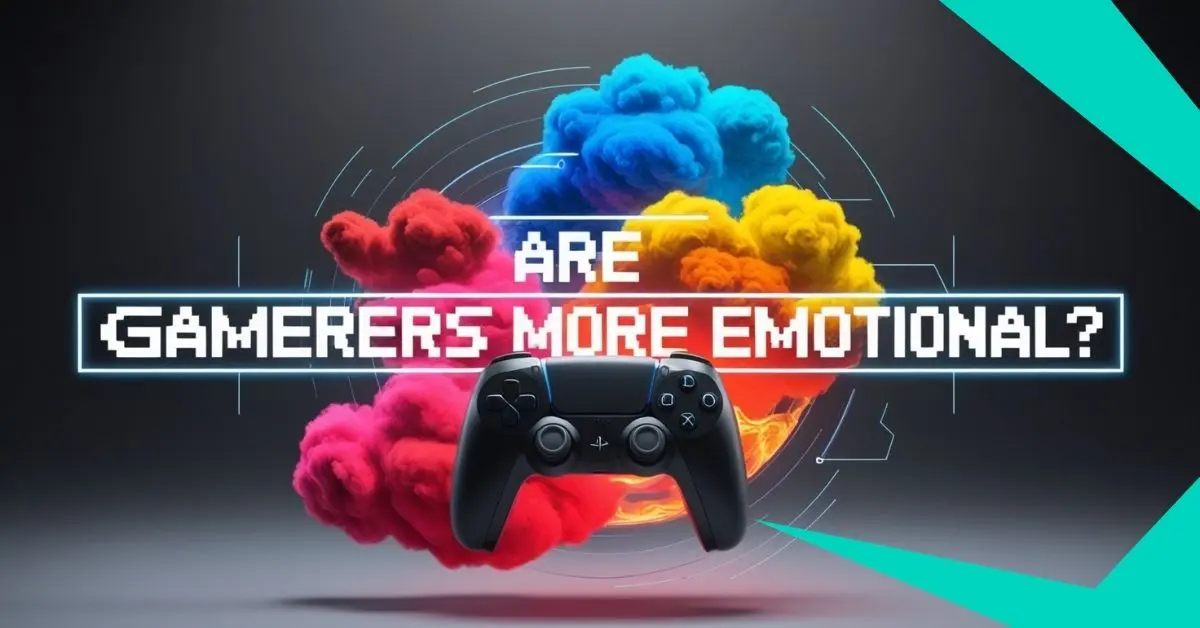
Key Takeaways:
- Gamers often experience heightened emotions due to immersive gameplay and social interactions.
- Emotions like frustration, excitement, and joy are common during gaming sessions.
- Emotional intensity varies based on the type of game (competitive vs. casual) and the player’s personality.
- Gaming can provide emotional regulation and even be therapeutic for some individuals.
- Gaming communities can foster both positive emotional connections and negative experiences like toxicity.
Short Answer to the Question
Yes, gamers tend to be more emotional during gameplay due to the immersive nature of gaming and the intense connection players often develop with the content. The emotional response depends on the game’s type, competitive nature, and player interaction, leading to feelings ranging from joy to frustration.
Introduction
Gaming is no longer just a casual hobby; for many, it has become a way to connect, challenge, and immerse themselves in rich, interactive worlds. Whether you’re playing a fast-paced shooter on your PS5, exploring vast universes on PC, or enjoying a casual puzzle on your Xbox, the emotional rollercoaster of gaming is undeniable. But does gaming make players more emotional than others? Let’s dive deep into the topic and find out how gaming affects emotions.
Understanding the Emotional Aspect of Gaming
Games are designed to invoke strong feelings, ranging from joy to frustration. Whether it’s the thrill of defeating a tough boss or the disappointment of losing a close match, these emotional highs and lows are common among gamers.
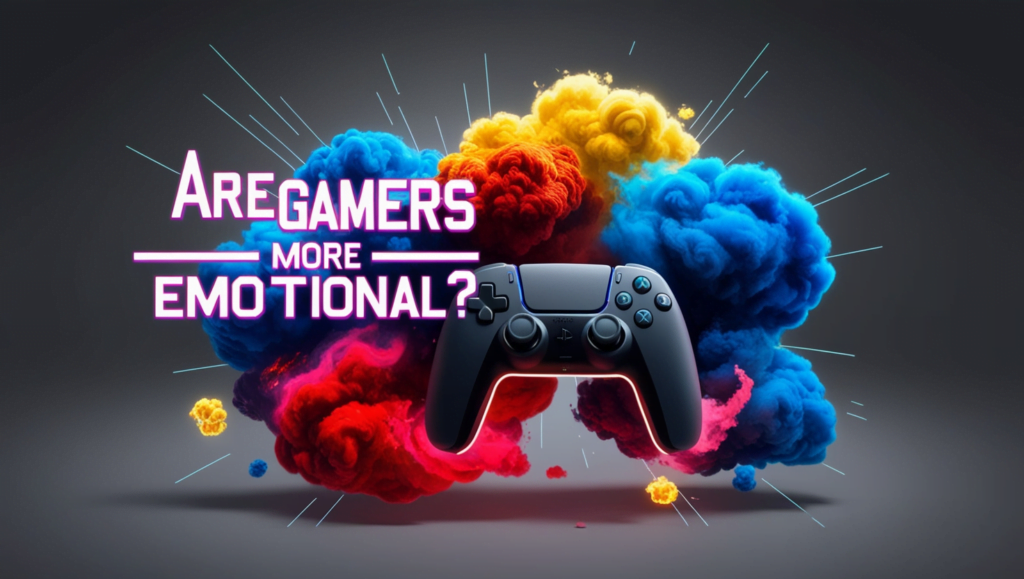
Why Are Gamers More Emotional?
- Immersive Gameplay
Modern video games offer an experience so rich and engaging that they can make players feel like they’re part of the story. This level of immersion creates strong emotional attachments to characters, victories, and losses. When you’re deeply invested in a game, every triumph or failure feels personal, often resulting in intense emotional responses. - Competitive Nature
Online multiplayer games, particularly on platforms like Xbox and PC, often pit players against each other in high-stakes scenarios. Winning or losing can have a significant impact on a player’s emotions. The adrenaline rush from a victory or the frustration from a defeat is magnified due to the competitive environment. - Social Interaction
Many gamers play online with friends or strangers, and these interactions can further heighten emotions. A positive social experience can lead to joy and camaraderie, while negative interactions, such as toxic behavior or trolling, can create frustration and anger. Social gaming is often about more than just winning; it’s about shared experiences and emotional connections.

- The Flow State
Gamers often enter a “flow state”—a psychological condition where a person is fully immersed in the activity. During this state, emotions can become amplified. If things are going well, the emotional high is incredible, but if something goes wrong, the emotional crash can be just as intense.
Positive Emotions in Gaming
Despite the moments of frustration, gaming often provides positive emotions. Joy, satisfaction, and pride are just a few of the feelings gamers experience when they achieve their goals in a game.
- Joy and Excitement
Games are designed to be fun, and accomplishing a goal, such as winning a match or solving a complex puzzle, can be incredibly rewarding. This joy is often what keeps players coming back for more.

- Achievement and Pride
Unlocking achievements or leveling up can give players a sense of pride and accomplishment. This is especially true in challenging games that require skill and patience. - Stress Relief
For many, gaming is a way to unwind and escape from the stresses of everyday life. Engaging in a game can help players focus on something enjoyable, providing an emotional reset.

Negative Emotions in Gaming
While gaming can produce a lot of positive emotions, it can also lead to negative feelings like frustration, anger, and even stress.
- Frustration
Whether it’s getting stuck on a difficult level or dealing with a laggy connection, frustration is a common emotion among gamers. For some, this frustration can boil over into anger, especially in competitive scenarios. - Anger
Intense competitive games, such as first-person shooters or MOBAs, can lead to anger, especially if the player feels they’re underperforming or if they’re dealing with toxic teammates. This can escalate into what’s known as “rage-quitting,” where a player becomes so frustrated they abruptly leave the game. - Disappointment
Losing in a game, especially after investing a lot of time and effort, can lead to feelings of disappointment. This is especially true in games that involve significant strategy or personal investment, where a loss can feel personal.

Emotional Regulation Through Gaming
Interestingly, gaming isn’t just a source of emotional highs and lows—it can also help players regulate their emotions. Games can serve as a way for individuals to process emotions in a safe, controlled environment.
- Coping Mechanism
For some players, video games provide an outlet for managing stress or anxiety. Immersing oneself in a game can be a distraction from negative emotions, offering a form of emotional escape. - Therapeutic Benefits
Studies have shown that some video games can be therapeutic, helping players manage emotions and even improve mental health. Games that emphasize creativity, problem-solving, and relaxation can have calming effects, reducing stress and promoting emotional well-being.
Conclusion
So, are gamers more emotional? The answer is yes—gaming has a unique ability to evoke strong emotional responses. The intense immersion, social connections, and competitive nature of many games can lead to a wide range of feelings, from joy to frustration. However, for many, the emotional rollercoaster of gaming is part of what makes it so enjoyable. Whether you’re looking for stress relief, camaraderie, or just a fun way to pass the time, gaming offers a space for emotional expression and exploration.
FAQ
Q: Can gaming be emotionally overwhelming?
A: Yes, depending on the intensity of the game and the player’s investment, gaming can sometimes become emotionally overwhelming, especially in competitive environments.
Q: Does gaming help with emotional regulation?
A: For many, gaming acts as a stress reliever, helping them manage emotions like anxiety or frustration. Some games even have therapeutic effects.
Q: Why do gamers get so angry?
A: Intense competitive pressure, technical issues like lag, or social interactions like toxicity can lead to anger in gamers, especially when they feel their efforts are not rewarded.
Q: Is it normal to feel sad after losing in a game?
A: Yes, it’s common for gamers to feel disappointed or sad after losing, especially in games where they’ve invested a lot of time or effort.
Q: Can gaming be harmful emotionally?
A: While gaming can offer stress relief, it can also lead to negative emotions like anger or frustration, particularly if the gaming environment is toxic or overly competitive.
Gaming Psychology
What is the Lifestyle of a Gamer?
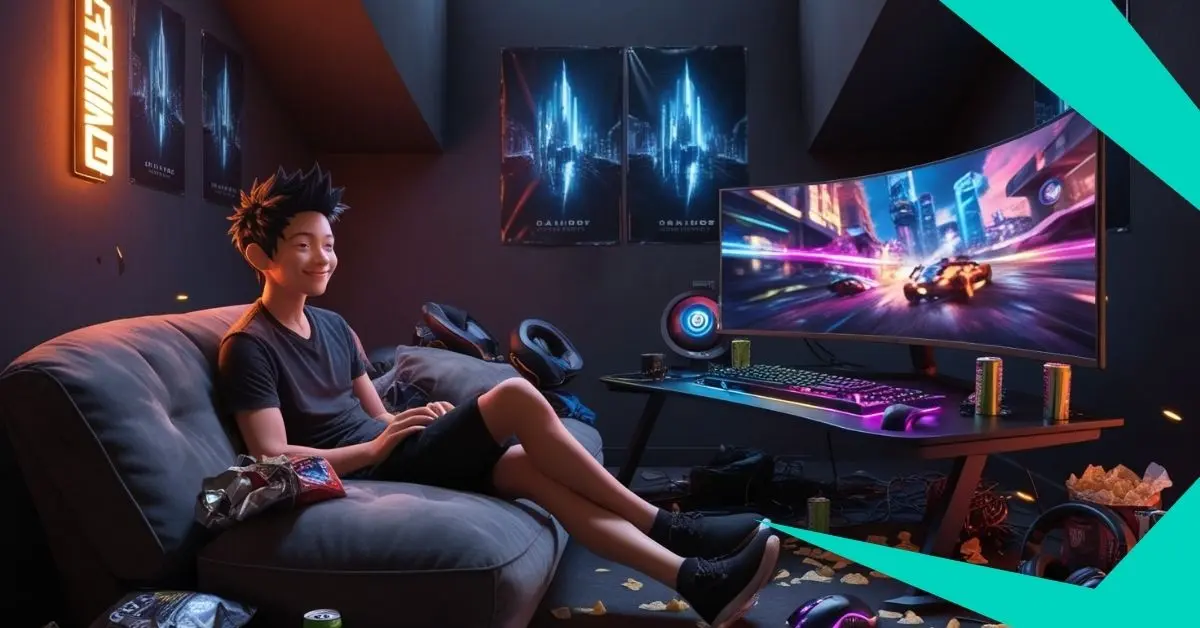
Key Takeaways:
- Gamers often lead a lifestyle that blends entertainment with community involvement.
- Gaming can have both positive and negative impacts on physical and mental health.
- The gaming lifestyle is diverse, ranging from casual play to professional eSports.
Introduction: The Diverse World of Gaming
Gaming isn’t just a hobby; it’s a lifestyle that millions of people worldwide embrace. Whether you’re a casual player or a dedicated eSports competitor, the gaming world offers a unique blend of entertainment, community, and even career opportunities. But what does it truly mean to live the life of a gamer?

The Daily Routine of a Gamer
Gaming Sessions: More Than Just Playtime
For many gamers, a typical day starts and ends with gaming. Whether it’s a quick match in the morning or an extended session at night, gaming is a central part of their routine. For some, this means dedicating hours to mastering a particular game, while for others, it’s about unwinding after a long day.
Balancing Time: Gaming and Other Responsibilities
Contrary to the stereotype, many gamers successfully balance their gaming time with work, school, and social life. Time management is crucial, especially for those involved in competitive gaming or streaming, where the demands can be intense.
Health and Wellness: The Physical Side of Gaming
While gaming is primarily a sedentary activity, many gamers are aware of the importance of physical health. Regular breaks, stretching exercises, and even integrating physical activity like VR gaming or standing desks help maintain a healthier lifestyle.

The Impact on Mental Health
Gaming can be both a stress reliever and a source of stress. On the positive side, it offers a way to escape daily pressures, providing mental stimulation and social interaction. However, excessive gaming can lead to issues like eye strain, sleep disruption, and in some cases, gaming addiction.
Social Life: Community and Interaction
Online Communities: More Than Just Friends
One of the most significant aspects of the gaming lifestyle is the sense of community. Gamers often form strong bonds with others through online platforms, forums, and social media. These connections can lead to lasting friendships and even collaborative opportunities in gaming content creation.
Events and Conventions: The Social Side of Gaming
For many gamers, attending events like eSports tournaments, gaming conventions, and meetups is a highlight. These gatherings offer a chance to connect with fellow gamers, meet influencers, and stay updated on the latest gaming trends.
Career Opportunities: Beyond the Controller
Professional Gaming: From Hobby to Career
For some, gaming evolves from a pastime into a full-fledged career. Professional gamers, streamers, and content creators can earn a living through sponsorships, ad revenue, and competitive winnings. However, this path requires dedication, skill, and a strong personal brand.

The Broader Gaming Industry: Opportunities Abound
Beyond playing, the gaming industry offers various career opportunities in game development, marketing, and journalism. Gamers often find that their passion can translate into a fulfilling career in an industry they love.
The Future of Gaming: What’s Next?
As technology advances, so does the gaming lifestyle. Virtual reality, augmented reality, and the increasing popularity of mobile gaming are just a few trends shaping the future. The gaming lifestyle will continue to evolve, offering new experiences and challenges for gamers worldwide.
Conclusion: Embracing the Gaming Lifestyle
The lifestyle of a gamer is as diverse as the games themselves. Whether you’re in it for fun, competition, or career aspirations, gaming offers a unique way to connect with others, challenge yourself, and explore new worlds. As with any lifestyle, balance is key—enjoy the games, but don’t forget to live outside the screen too.

FAQ
What are the benefits of gaming?
Gaming can improve cognitive abilities, provide stress relief, and offer social interaction through online communities.
How can gamers maintain a healthy lifestyle?
Taking regular breaks, engaging in physical activities, and balancing gaming with other responsibilities are essential for maintaining health.
Is professional gaming a viable career?
Yes, but it requires dedication, skill, and building a personal brand. The gaming industry also offers various other career paths.
How does gaming impact mental health?
What is the future of gaming?
The future of gaming is likely to see advancements in VR, AR, and mobile gaming, offering new experiences and challenges for gamers.
Gaming Psychology
Why Are Gamers Happier? Exploring the Joy of Gaming
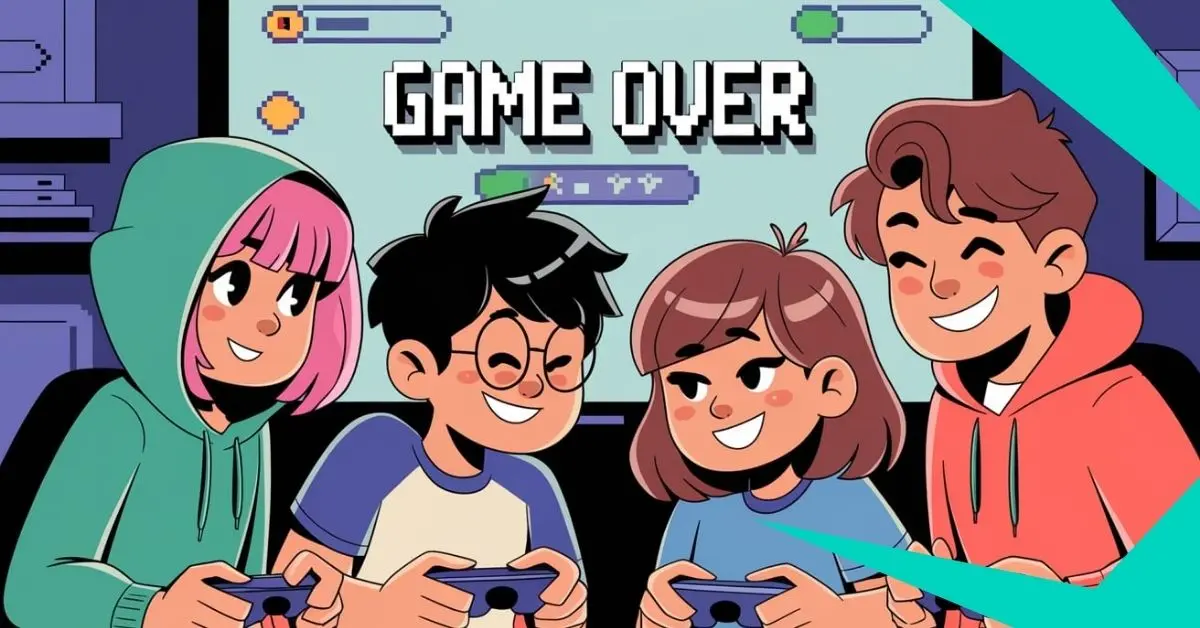
Short Answer
Gamers often experience increased happiness due to strong community connections, a sense of achievement, mental stimulation, creative outlets, and the ability to balance gaming with real life.
Key Takeaways
- Community: Gaming fosters strong social connections and a sense of belonging.
- Achievement: Progression systems in games provide a sense of accomplishment.
- Mental Benefits: Gaming enhances problem-solving skills and offers stress relief.
- Creativity: Many games allow for self-expression and creative content creation.
- Balance: Healthy gaming habits ensure that gaming contributes positively to overall well-being.
Why Are Gamers Happier?
Gaming has evolved from a niche hobby to a mainstream pastime enjoyed by millions worldwide. But have you ever wondered why gamers often report higher levels of happiness? Let’s dive into the reasons behind this phenomenon and explore how gaming contributes to overall well-being.
Community and Social Interaction
One of the biggest factors contributing to gamers’ happiness is the strong sense of community and social interaction that gaming provides.
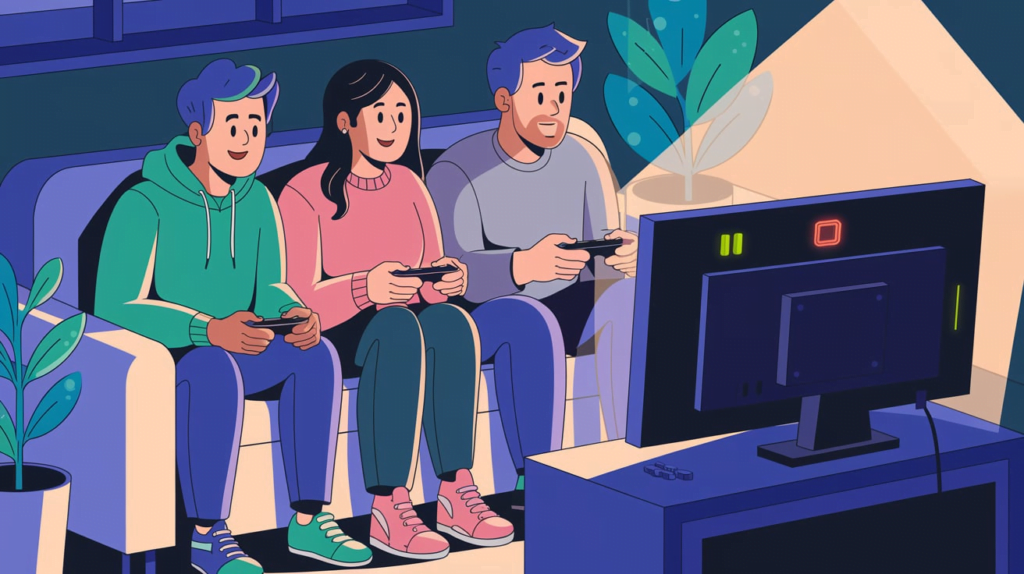
Building Connections
Multiplayer games and online communities like Discord and Reddit’s gaming forums create platforms where gamers can connect, share experiences, and form friendships. These connections often extend beyond the game, providing a support network that enhances personal happiness.
Sense of Belonging
Being part of a gaming community gives players a sense of belonging. Whether it’s through teamwork in a cooperative game or shared interests in specific genres, gamers feel connected to others who understand their passion. This feeling of belonging is crucial for emotional well-being and can significantly boost happiness.
Examples
Popular gaming communities such as those found in World of Warcraft or Fortnite allow players to join clans, participate in events, and engage in regular interactions, fostering a tight-knit community spirit.
Achievement and Goal Fulfillment
Gaming provides numerous opportunities for players to achieve goals and experience a sense of accomplishment.

Progression Systems
Many games incorporate leveling up, completing quests, and earning rewards. These progression systems give players clear objectives and a roadmap to success, which can be highly satisfying. Achieving these milestones within a game translates to a sense of real-world accomplishment.
Intrinsic Motivation
Setting and reaching goals in games boosts self-esteem and provides a sense of purpose. Whether it’s conquering a difficult level or mastering a new skill, these achievements motivate players and contribute to their overall happiness.
Examples
Games like World of Warcraft and Call of Duty are renowned for their robust progression systems that keep players engaged and striving for new achievements.
Mental Stimulation and Cognitive Benefits
Problem-Solving Skills
Strategy games and puzzles enhance cognitive abilities by challenging players to think critically and solve complex problems. This mental stimulation keeps the brain active and can lead to improved cognitive function over time.
Stress Relief
Gaming provides an escape from daily stresses, allowing players to unwind and relax. Engaging in immersive gameplay can lower stress levels and improve mood, contributing to overall happiness.
Examples
Games like Portal and StarCraft are excellent for enhancing problem-solving skills and providing mental challenges that keep players engaged and mentally sharp.
Creativity and Self-Expression
Many games offer platforms for creativity and self-expression, which are key to personal fulfillment and happiness.
Custom Content Creation
Games like Minecraft and The Sims allow players to create custom content, from building intricate structures to designing unique characters. This creative freedom enables gamers to express themselves and explore their imaginations.
Storytelling
Narrative-driven games provide an outlet for players to engage in and create their own stories. This storytelling aspect allows gamers to connect emotionally with the game and express their creativity through the narratives they build.
Examples
Creative games such as Minecraft and The Sims encourage players to use their creativity, fostering a sense of accomplishment and personal satisfaction.
The Balance Between Gaming and Real Life
Maintaining a healthy balance between gaming and real life is essential for ensuring that gaming contributes positively to happiness.
Healthy Gaming Habits
Establishing boundaries and ensuring that gaming doesn’t interfere with other aspects of life is crucial. Healthy gaming habits include setting time limits, taking regular breaks, and prioritizing responsibilities alongside gaming.
Examples of Moderation
Strategies for maintaining balance include scheduling gaming sessions, balancing gaming with physical activities, and ensuring that gaming remains a fun and rewarding part of life without becoming overwhelming.
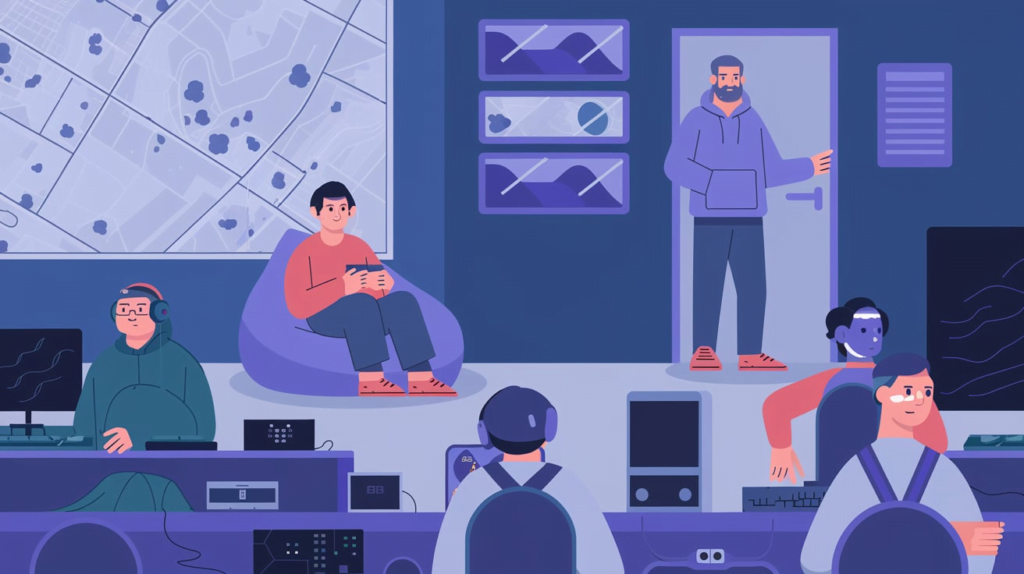
Frequently Asked Questions
How does gaming improve mental health?
Gaming can improve mental health by providing stress relief, enhancing cognitive abilities, and offering a sense of accomplishment. Engaging in games can help reduce anxiety and improve mood.
Can gaming lead to better social skills?
Yes, multiplayer games and online communities foster social interaction, helping players develop better communication and teamwork skills. These interactions can translate to improved social skills in real life.
Is gaming addictive, and how does it affect happiness?
While excessive gaming can lead to addiction, moderate gaming is associated with increased happiness due to the social connections, achievements, and mental stimulation it provides. Maintaining a healthy balance is key.
What types of games are best for boosting happiness?
Games that offer strong community interactions, progression systems, creative outlets, and mental challenges are best for boosting happiness. Examples include MMORPGs, strategy games, and creative sandbox games.
How can I ensure my gaming habits contribute to my happiness?
To ensure gaming contributes to happiness, practice moderation, engage in games that you enjoy, connect with a positive gaming community, and balance gaming with other life activities.
Conclusion
Gaming offers a multitude of benefits that contribute to the happiness of players. From fostering strong community connections and providing a sense of achievement to enhancing mental stimulation and allowing for creative expression, gaming plays a significant role in boosting overall well-being. By maintaining a healthy balance between gaming and real life, gamers can continue to enjoy these benefits and experience lasting happiness through their passion for games.
For more insights into the benefits of gaming and to join a thriving community of gamers, visit GamesReq.com.

 Games Like2 years ago
Games Like2 years agoBest Games Like Unblocked Games 77 | Top Alternatives

 Gaming1 year ago
Gaming1 year agoFree Fire Best Sensitivity Settings For Headshot

 Top 102 years ago
Top 102 years agoThe Top 20 Android Horror Games to Play with Friends

 Game Room Ideas11 months ago
Game Room Ideas11 months ago52 Incredible Game Room Ideas to Elevate Your Home Entertainment

 Tutorials2 years ago
Tutorials2 years agoHow to Fix the PS5 Green Screen – Tips To Try

 Tutorials11 months ago
Tutorials11 months agoHow to Play Fishbowl Game: Rules, Regulations, and Tips

 Top 1011 months ago
Top 1011 months ago10 Best Offline Mobile Games For Long Car Rides 2024

 Tutorials11 months ago
Tutorials11 months agoYandex Games Progress Lost? Here’s How to Recover and Prevent Future Issues


